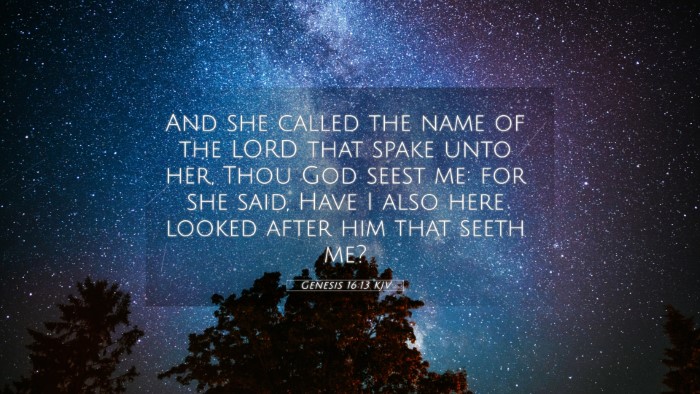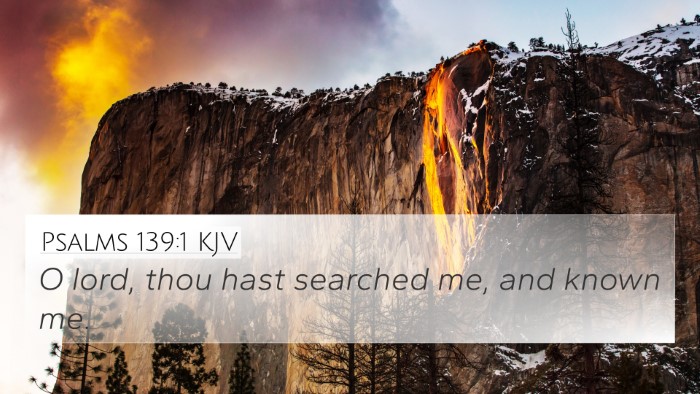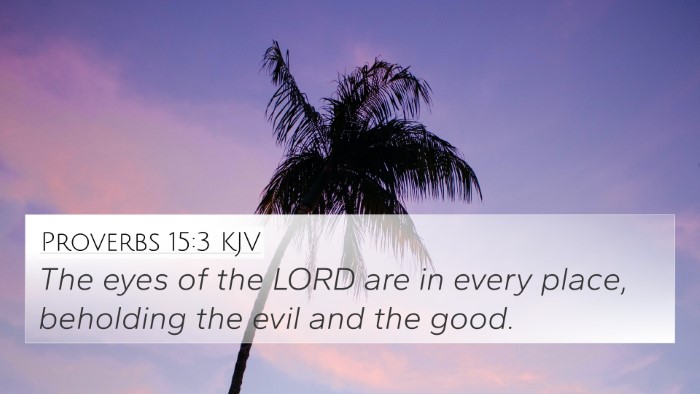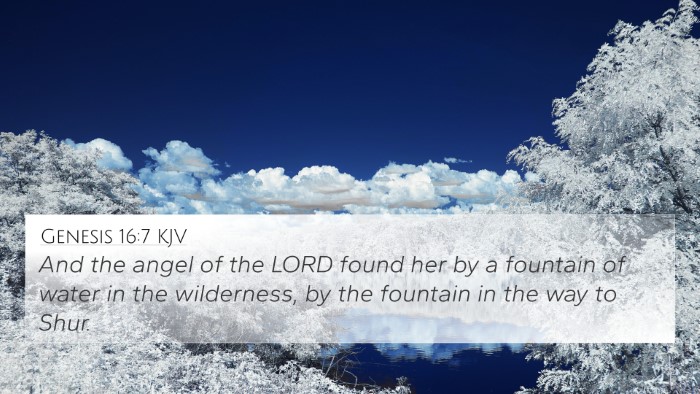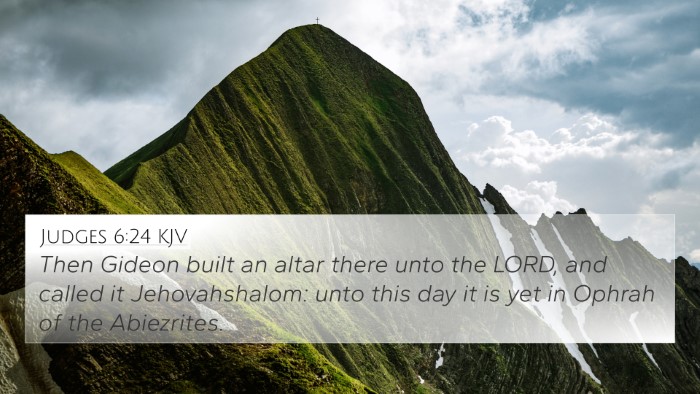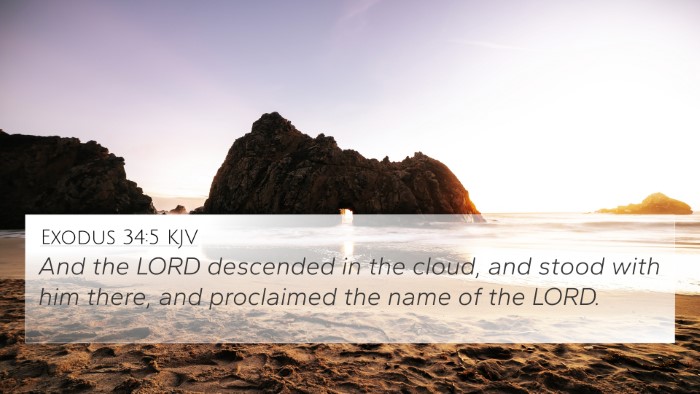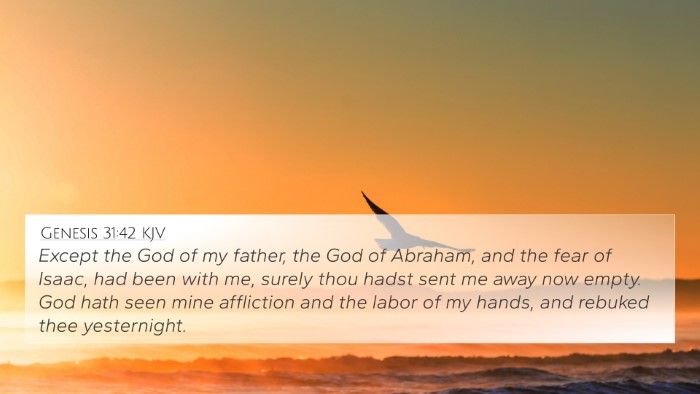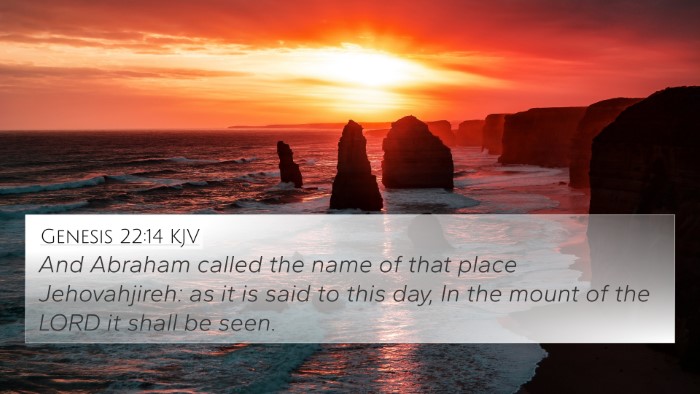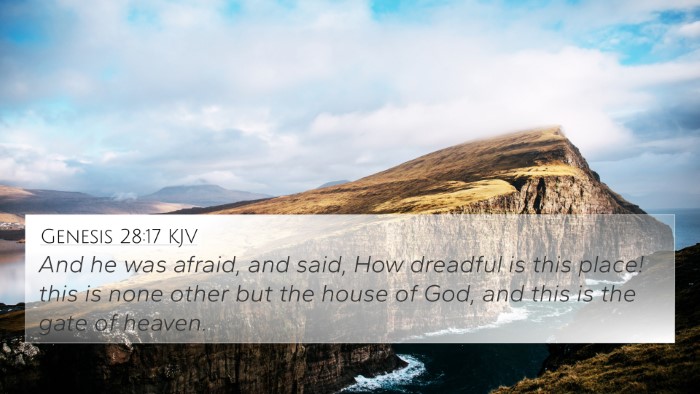Bible Verse Analysis: Genesis 16:13
Verse: "Then she called the name of the Lord who spoke to her, 'You are a God of seeing,' for she said, 'Truly here I have seen him who looks after me.'"
Understanding Genesis 16:13
Genesis 16:13 captures a pivotal moment in the life of Hagar, the Egyptian maidservant of Sarai. This verse reflects Hagar's profound encounter with the Divine, underscoring God's awareness and care for those who are marginalized and oppressed. Below, we explore the verse's meaning through insights from notable public domain commentaries.
Insights from Commentaries
-
Matthew Henry:
Henry emphasizes the significance of Hagar's realization that God sees her plight. He notes that the name given to God, "El-Roi" ("God of Seeing"), indicates God's omnipresence and omniscience. Hagar, a woman with little status, receives divine attention, which illustrates God's concern for the downtrodden.
-
Albert Barnes:
Barnes points out that Hagar interprets God's message as an affirmation of His past and present care. He argues that this revelation transforms her understanding of God's nature, reinforcing the idea of a personal God who is intimately aware of human suffering and need.
-
Adam Clarke:
According to Clarke, this verse teaches about God's willingness to engage with those in despair. He highlights that Hagar, despite her status, is not overlooked, exemplifying the theme of God's grace extending to all, regardless of their social standing.
Thematic Connections in Scripture
The themes present in Genesis 16:13 resonate throughout the Bible, emphasizing God's omniscience, care, and the treatment of the marginalized. Below are relevant cross-references that enrich our understanding of this verse:
- Exodus 3:7: "Then the LORD said, 'I have surely seen the affliction of my people who are in Egypt...'" – This verse affirms God's awareness of human suffering, echoing the themes found in Genesis 16:13.
- Psalms 34:18: "The LORD is near to the brokenhearted and saves the crushed in spirit." – This verse reinforces the idea of God’s compassionate presence with the downtrodden.
- Isaiah 41:10: "Fear not, for I am with you; be not dismayed, for I am your God…" – God's promise of companionship and support reflects the reassurance Hagar receives.
- Matthew 10:29-31: "Are not two sparrows sold for a penny? And not one of them will fall to the ground apart from your Father." – Jesus highlights God’s meticulous care over all creation, reminding believers of their significance.
- Luke 12:6-7: Similar to Matthew’s passage, it speaks of God’s watchfulness and individual concern for every person: "You are of more value than many sparrows."
- John 4:10: "If you knew the gift of God, and who it is that is saying to you, 'Give me a drink'..." – This verse speaks to the personal nature of God’s interactions with individuals.
- 1 Peter 5:7: "Casting all your anxieties on him, because he cares for you." – This echoes the sentiment expressed by Hagar in recognizing God’s personal awareness and involvement in her life.
Conclusion
Genesis 16:13 serves as a reminder of God’s active engagement in the lives of those who feel lost or forgotten. Hagar's declaration of God's sight illustrates a broader theological truth: that God sees and cares for all, especially those marginalized by society. This concept of divine care resonates with numerous Bible verses, creating a rich tapestry of hope and reassurance for those seeking understanding and connection within Scripture.
Allusions and Cross-Referencing Resources
- Utilizing a Bible concordance can help locate key themes and direct passages related to Hagar’s experience.
- Bible cross-reference guides provide valuable tools for studying interconnected scriptural passages that highlight God’s character and promises.
- Cross-referencing Bible study methods may include thematic analysis to identify overlapping ideas within biblical text.
- Engaging with Bible reference resources enhances understanding of God's attributes as depicted throughout different verses.
In summary, cross-referencing Genesis 16:13 with other Bible verses allows for a deeper understanding of the themes of divine care, omniscience, and the significance of every individual's experience before God.

